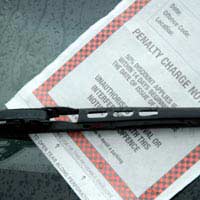What's the Law on Parking, Clamping and Fines?

Clamping vehicles on private land is to be outlawed, as well as towing and any other type of vehicle immobilisation, in England and Wales. The practice has been outlawed in Scotland since 1991, but will still remain legal in Northern Ireland.
The ban in England and Wales will mean that anyone who clamps a vehicle or tows it away when it has been parked, wrongly or not, on private land without specific legal permission to do so, is likely to face criminal proceedings or civil sanctions. The penalties could include fines or jail terms.
Why Has the Government Clamped Down?
Clamping of vehicles that have been parked on private land is big business – it’s said to be worth in the region of £1bn a year to the so-called parking enforcement companies. The practices of some of the more unscrupulous in the industry has tarred the whole business with the same brush, however, and there have been widespread claims of extortion from some unsuspecting motorists.Home Office Minister Lynne Featherstone announced the ban in August 2010, saying that the Government wanted to see an end to what she described as ‘the menace of rogue private sector wheel-clampers’
She said that motorists have been falling victim to unscrupulous tactics by some clamping companies for too long, and that instances where motorists had actually been physically marched to cash points to get money for the clampers, or left stranded after their car has been towed away were unacceptable.
Regional and Local Transport Minister Norman Baker said that he thought the rules which governed parking on private land needed to be’ proportionate’ and they should not result in motorists being intimidated or forced to pay excessive fines. He added that so-called ‘Cowboy clampers’ had been given plenty of chances to smarten up their act, but stories of bullying persist.
He said that he believed the new legislation would mean that drivers no longer needed to worry about being intimidated by rogue traders, and that this would also mean that the parking industry would be in a better position to be able to start restoring its reputation with the public.
When Does the New Clamping Legislation Take Effect?
The planned legislation looks likely to be introduced as part of the government's Freedom Bill in November. It’s expected to introduce new penalties for business and individuals who are caught clamping a vehicle or towing it away after being parked on private land.Motoring groups have broadly welcomed the news, but unsurprisingly parking firms said that they thought the outright ban was too harsh, and that regulation was the answer. The ban will mean that more than 2,000 clamping licences will have to be revoked as a result, but it’s not a charter for people to park wherever they choose - private firms will still be able to slap a parking ticket on unauthorised parked cars.









Re: Dealing With Cowboy Builders
Beware of a roofing company called TECTRA ROOFING in Worthing West Sussex, my builder used them for my kitchen and lounge…
Re: Dealing With Cowboy Builders
ESBP Specialists Ltd - The MOB that took over £36,000 from us for sub standard/dangerous/illegal work on a renovation between May…
Re: Holiday Lets: Is the Contract With Owner or Agent?
Booked accommodation through Sykes and had to agree to a £350 good housekeeping bond to cover…
Re: Holiday Lets: Is the Contract With Owner or Agent?
Booked accommodation through Sykes and had to agree to a £350 good housekeeping bond to cover…
Re: Complain About Your Meal
Hi, I ordered myself and my daughters a vegan burger, mine was ok, and I looked at hers and seemed different so I realised restaurant…
Re: Dealing With Cowboy Builders
As a long serving member of Trading Standards, I wish to clarify to consumers who have become victims of a rogue builder. 1. There…
Re: Dealing With Cowboy Builders
Beware of a joinery company based in west london called Estimus. I regret the day that our builder appointed them to do the…
Re: When a Price is Reduced After Your Deposit is Paid
I put a deposit down on a car from a well known car dealer. The agreed price was £21,494 and I paid…
Re: Dealing With Cowboy Builders
@wedny have been trying to reply to you - please email me. I can't seem to include the email address as it is usually written,…
Re: Dealing With Cowboy Builders
Ted Bakali (Mohtade) has a history of appearing trustworthy, building relationships, appearing to be doing what is right until you…